 W
WThe 24H Series is a sports car racing and touring car racing series developed by Creventic and with approval from the Fédération Internationale de l'Automobile (FIA). It features GT3-spec cars, GT4-spec cars, sports cars, touring cars and 24H-Specials, like silhouette cars. The calendar consists only of 24-hour and 12-hour races. 2015 was the first season with drivers battling for championship points and titles. It also marked the first season with official FIA International Series’ status.
 W
WThe 944 Cup is a grassroots motorsports road racing series dedicated to the front-engine water-cooled Porsche 944. The race series was created as a standalone series which began operating as such within numerous sanctioning bodies. The series was founded by the current National Director, Dave Derecola, and his son Chris Derecola, who continue to own and operate the series. The series currently races within the Porsche Club of America, under the direction of the National Director as a guest series.
 W
WThe 2020 GT Cup Championship was the 14th GT Cup Championship, a British sports car championship. The season began on 11 July at Snetterton Circuit and ended on 25 October at Donington Park, after twenty races held over five meetings.
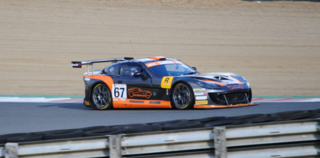 W
WThe 2021 GT Cup Championship is the 15th GT Cup Championship, a British sports car championship. The season began on 10 April at Donington Park and end on 3 October at Snetterton Circuit, after twenty-six races held over seven meetings.
 W
WAmerican Iron is a group of North American road racing classes sanctioned by the National Auto Sport Association (NASA).
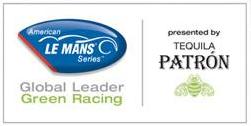 W
WThe American Le Mans Series (ALMS) was a sports car racing series based in the United States and Canada. It consisted of a series of endurance and sprint races, and was created in the spirit of the 24 Hours of Le Mans.
 W
WThe Asian Le Mans Series is an Asian sports car racing endurance series created by the Automobile Club de l'Ouest (ACO) and based in Asia. It is the successor to the defunct Japan Le Mans Challenge which folded in 2007 after its second season. The ACO aims to attract teams and drivers from Asian countries
 W
WThe Aston Martin Asia Cup (AMAC) is the world's first ever Aston Martin one make series. All drivers will compete for the AMAC title in identical Aston Martin V8 Vantage N24 race cars.
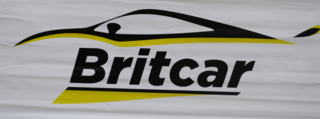 W
WBritcar is an endurance sports car racing and touring car racing series in the United Kingdom.
 W
WC Sports Racer (CSR) now known as Prototpye 1 (P1) is a class in the Sports Car Club of America. it consists of open top prototype style cars. The maximum displacement is 1615cc, in a 2 valve crossflow engine, with a minimum weight of 1300lbs w/driver. Two cycle or 4 valve/4 cycle motors between 850cc and 1300cc are permitted with a minimum weight of 1200lbs. Supercharging and turbocharging are permitted within limits, and with a maximum displacement of 765cc. Some CSRs are Formula Atlantic or Formula SCCA cars converted by adding bodywork to the chassis.
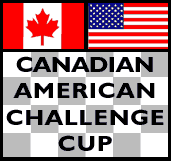 W
WThe Canadian-American Challenge Cup, or Can-Am, was an SCCA/CASC sports car racing series from 1966 to 1987.
 W
WCircuit Showdown was a Philippine auto racing series that began in 2010 and was organized by Enzo Pastor and Dalia Pastor. It was the only circuit racing series in the country that is open to both amateur and professional drivers.
 W
WD Sports Racing now known as Prototype 2 is a Sports Car Club of America class for purpose-built, 'LeMans-style', closed wheel roadracing cars. It has been called the one racing category that remains unfettered by regulations that have throttled innovation elsewhere in motorsport.
 W
WThe European Le Mans Series (ELMS) is a European sports car racing endurance series inspired by the 24 Hours of Le Mans race and run by the Automobile Club de l'Ouest (ACO). The European Le Mans Series is similar to the former American Le Mans Series (ALMS) based in the United States and Canada that was running with ACO and IMSA between 1999 and 2013. ELMS team champions and runners-up receive an automatic entry to the following year's 24 Hours of Le Mans. Originally titled the Le Mans Endurance Series before becoming simply the Le Mans Series in 2006, the series was renamed once more in 2012, reusing a name previously utilized by IMSA in 2001.
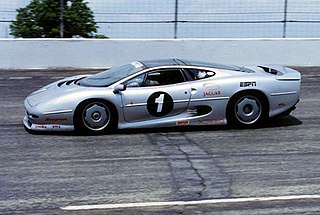 W
WFast Masters was a made-for-television auto racing series, broadcast on ESPN in 1993, featuring notable drivers over the age of 50, most of whom were retired from professional racing at the time. The Fast Masters series was a summer-long elimination competition, with identically-prepared, $750,000, TWR, Jaguar XJ220s racing on Bridgestone RE71 high-performance street tires. The races took place under-the-lights at Indianapolis Raceway Park, in conjunction with ESPN's Saturday Night Thunder. The cars carried the sponsorship of Havoline, and the series was officially sanctioned by USAC.
 W
WThe FIA GT Championship was a sports car racing series organized by the Stéphane Ratel Organisation (SRO) at the behest of the Fédération Internationale de l'Automobile (FIA). The championship was mostly concentrated in Europe, but throughout the years has visited other continents including Asia and South America. At the end of 2009, the championship was replaced by the FIA GT1 World Championship, which morphed into the FIA GT Series for 2013.
 W
WThe FIA World Endurance Championship is an auto racing world championship organized by the Automobile Club de l'Ouest (ACO) and sanctioned by the Fédération Internationale de l'Automobile (FIA). The series supersedes the ACO's former Intercontinental Le Mans Cup which began in 2010 and is the first endurance series of world championship status since the demise of the World Sportscar Championship at the end of 1992. The World Endurance Championship name was previously used by the FIA from 1981 to 1985.
 W
WThe Ginetta GT4 Supercup is a one-make racing, Sports car racing series based in the United Kingdom, using identical Ginetta G50 and G55 sports cars. The championship currently supports the British Touring Car Championship (BTCC).
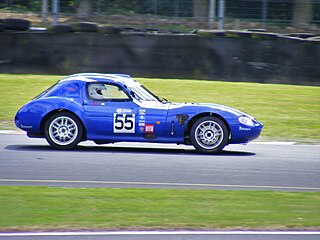 W
WThe Ginetta Junior Championship is a one-make racing series based in the United Kingdom. From the 2010 season teams use the Ginetta G40, having previously used the Ginetta G20.
 W
WThe GT World Challenge America is a North American auto racing series launched in 1990 by the Sports Car Club of America. It has been managed by the Stephane Ratel Organisation since 2018, and has been sanctioned by the United States Auto Club since 2017.
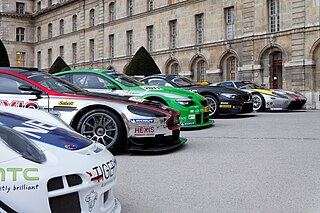 W
WThe GT World Challenge Europe Endurance Cup, formerly for sponsorship reasons the Blancpain Endurance Series from 2011 to 2015 and Blancpain GT Series Endurance Cup from 2016 to 2019, is a sports car racing series developed by SRO Motorsports Group and the Royal Automobile Club of Belgium (RACB) with approval from the Fédération Internationale de l'Automobile (FIA). It features grand tourer racing cars modified from production road cars complying with the FIA's GT3 regulations. The series's goal is to be an endurance racing championship for GT3 cars, similar to the European Le Mans Series which uses GTE cars and Le Mans Prototypes. The series was primarily sponsored by Swiss watchmaker Blancpain, and the company's Lamborghini Super Trofeo series serve as support races. In 2019, SRO announced that their sponsorship deal with Blancpain had been discontinued and the series was renamed the GT World Challenge Europe Endurance Cup for the 2020 season.
 W
WIMSA GT was a sports car racing series organized by International Motor Sports Association. Races took place primarily in the United States, and occasionally in Canada.
 W
WIMSA Prototype Challenge presented by Mazda is a racing series featuring two classes of single-seat prototype cars racing simultaneously. The series is sanctioned by the International Motor Sports Association (IMSA). Most races are held in support of the WeatherTech SportsCar Championship. The L1 class features Élan Motorsport Technologies DP02 carbon tub cars powered by a 2.0 L Mazda MZR engine. In 2013 the L2 class switched to the same Elan DP02 tub of the L1, but fitted with the car's previous generation 2.3 L Mazda engine. Each class has an overall championship, a master’s championship for drivers at least 40 years of age, and a team championship. Each race is usually 30–45 minutes.
 W
WThe IMSA SportsCar Championship, currently known as the IMSA WeatherTech SportsCar Championship under sponsorship, is a sports car racing series based in the United States and Canada and organized by the International Motor Sports Association (IMSA). It is a result of a merger between two existing North American sports car racing series, the American Le Mans Series and Rolex Sports Car Series. At its inception, the name was United SportsCar Championship, which subsequently changed to IMSA SportsCar Championship in 2016. Rolex SA's Tudor brand was the championship's title sponsor in 2014 and 2015, and since 2016 WeatherTech has served as title sponsor.
 W
WThe Intercontinental GT Challenge is a sports car racing series developed by the SRO Group in 2016. It consists of international endurance races for grand tourer racing cars complying with the FIA's GT3 regulations.
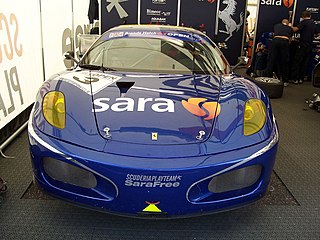 W
WThe Italian GT Championship is an Italian sports car series founded in 2003 and organized by the Automobile Club d'Italia (ACI) and the Commissione Sportiva Automobilistica Italiana (CSAI). It replaced a previous supercar-based championship which ran from 1992 until 2002 when it was folded due to a lack of entrants. The series borrowed heavily from the international FIA GT Championship in its first few seasons, although additional entries from Ferrari Challenge, Porsche Supercup, and Maserati Trofeo competitors were allowed.
 W
WThe Japan Le Mans Challenge was an endurance sportscar series based in Japan built around the 24 Hours of Le Mans that began in 2006. It was run by the Sports Car Endurance Race Operation (SERO) sanctioning body and ran under the rules laid out by the Automobile Club de l'Ouest (ACO). It is the first endurance sportscar series in Japan since the demise of the All Japan Sports Prototype Championship in 1992, although the ACO had run a single endurance race since then, the 1999 Le Mans Fuji 1000 km. The series was cancelled in 2007 following two poor seasons.
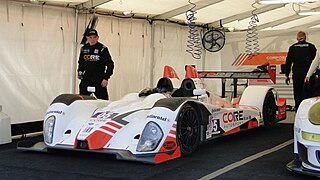 W
WThe Le Mans Prototype Challenge was a spec sports prototype formula created by the Automobile Club de l'Ouest (ACO), organisers of the 24 Hours of Le Mans, and sports car constructor Oreca. The formula is intended as part of a ladder system for young and upcoming drivers into the world of endurance racing while also serving as a value engineered entry for drivers and teams into Le Mans Prototypes due to limitations on manufacturers and suppliers.
 W
WThe Michelin Le Mans Cup is an International sports car racing endurance series inspired by the 24 Hours of Le Mans race and run by the Automobile Club de l'Ouest (ACO).
 W
WThe Rolex Sports Car Series was the premier series run by the Grand American Road Racing Association. It was a North American-based sports car series founded in 2000 under the name Grand American Road Racing Championship to replace the failed United States Road Racing Championship. Rolex took over as series sponsor in 2002.
 W
WThe SCCA Spec Racer Ford Pro Series was a sports car racing series in the United States. The series existed between 1994 and 2002 the series was revived for 2010 and 2011.
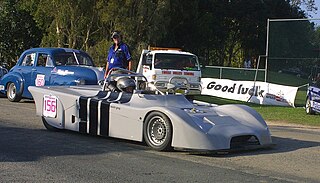 W
WSports 2000 is a restricted-rules class of two-seat, mid-engined, open-cockpit, full-bodied sports-prototype racecar used largely in amateur road racing. Sometimes known as S2000 or S2, the class was developed by John Webb, then of the Brands Hatch racing circuit in England, as an affordable form of sports car racing, essentially a sports car version of Formula Ford 2000. The key attributes of the class were a body design reminiscent of two-liter Group 6 sports racing cars like the Chevron B21 and Lola T-212 but with an ultra-reliable and inexpensive drivetrain comprising a two-liter "Pinto" overhead camshaft engine with very limited allowed modifications and the well-proven, VW-based Hewland Mk 9 transaxle. S2000 aerodynamics continued to evolve beyond their 1970s Group 6 roots, with very 'slippery' cars featuring spats over the wheels becoming the norm.
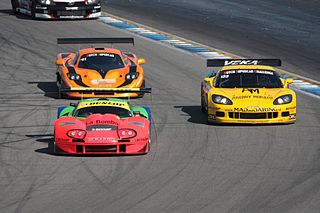 W
WThe Supercar Challenge is a motor racing series centered on the Benelux. A special feature is that touring cars, GTs and Sportscars can all participate on an equal basis within the same class, enabled by very open regulations. The championship was first held in 2001, after replacing the Supercar Cup. From 2001 to 2011 the championship was called the Dutch Supercar Challenge, but due to interest from drivers, teams and tracks outside the Netherlands the organisers decided to drop 'Dutch' from its name on 11 February 2012.
 W
WThe Trans-Am Series is a sports car racing series held in North America. Founded in 1966, it is sanctioned by the Sports Car Club of America (SCCA).
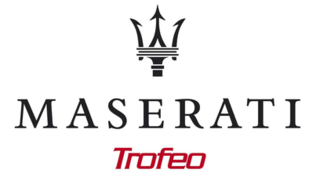 W
WThe Trofeo Maserati is a single-marque motorsport championship that was started by Maserati Corse in 2003, with the introduction of the Maserati Coupé. Its title is commonly confused as Maserati Trofeo, which in fact refers to the name devised for the 4200 Coupé built for the series. However, in recent years Maserati themselves have been very inconsistent regarding the name of the championship, making it hard to define what is officially correct. In this article, the series will be referred to as Trofeo Maserati.
 W
WThe TVR Tuscan Challenge is a one-make series dedicated to the second incarnation of the TVR Tuscan sports car, and takes place throughout the United Kingdom. Inaugurated in 1989, its high power-to-weight ratio, capability of reaching 190 mph (310 km/h) and loud engine noise, combined with close racing in a field consisting of over 30 cars at its peak, made the series become, at the time, the premier one-make series in the UK with an extensive TV coverage; over the years, many drivers who competed in the series moved on in major championship series and many notable drivers have guest driven in a race. The company underwent management changes in 2005, and the TVR Tuscan Challenge was merged with its owner club's series, which has been reformatted to allow for all TVR models.